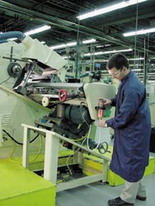 Article written by Christer Idhammar President, IDCON, Inc., a maintenance management consulting and training company.Further information is available by contacting This email address is being protected from spambots. You need JavaScript enabled to view it.
Article written by Christer Idhammar President, IDCON, Inc., a maintenance management consulting and training company.Further information is available by contacting This email address is being protected from spambots. You need JavaScript enabled to view it.
Most maintenance organizations are overstaffed, not necessarily with own staff, but they use more total maintenance hours than necessary. Total maintenance hours include your own internal hours, overtime hours and contractor hours. As an example a newsprint mill making 500,000 tons recycled paper per year is very good at less than 0.3 total maintenance hours per ton while most operations we have been working with are using over 0.5 total maintenance hours per ton.
If you work in a highly reactive maintenance organization you will be trapped in a circle of despair and you are wasting too much time on doing the wrong things. A circle of despair is when you have to react to a problem on a short notice. You then have to correct the problem as fast as possible; the quality of the correction will then be less than perfect. This leads to that it soon has to be repaired again and this circle of despair will continue and absorb all time you could have used to do the right things.

 By Frank Mowka
By Frank Mowka Philip Heine from T Cards Direct explains why many companies go for a simple approach to coordinating Engineering Staff and Health & Safety
Philip Heine from T Cards Direct explains why many companies go for a simple approach to coordinating Engineering Staff and Health & Safety